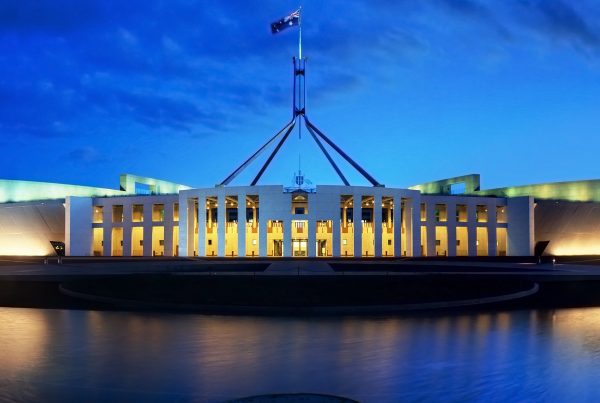Ed: No doubt for some in Mother England, Blair’s speeches bring with them the baggage of history – ‘here we go again’. But Down-Under this ‘vision-type’ speech is refreshing, and relevant for public relations practitioners dealing in change management.
The world we used to know is no more and is still changing
Tony Blair – July 28, 2011
There are challenges ahead, but there’s no need to fear them.
THIS is a world that is interdependent as never before. This was brought home to me most
dramatically by the financial crisis. I remember sitting in my house in London in September 2008 when Lehman Bros crashed, and suddenly the name was everywhere and leading the news of all the television stations. I remember leaving the house that morning, and I was going to the car and there was a guy in the street who recognised me and stopped me and said: ”Who are these guys, anyway?”
It was an example of how in today’s world what started as a subprime mortgage crisis in the south of America literally swept the world and precipitated that global financial crisis.
But if you look at the euro zone today, and the difficulties that it has, the truth is, whatever country within the euro zone is affected dramatically by events – whether it’s in Greece, Ireland or Portugal and, actually, the UK, which is not a member of the single currency – is still radically and profoundly affected by what happens within that single currency zone.
You here in Australia are profoundly affected by what happens in China. Whether the Chinese economy continues to grow in the way that it has will have a significant impact. Actually, your relationship in trading terms with China and the outside world has undergone a huge shift just in the last decade.
That leads me to the other characteristics of the world today, which is power is shifting east and shifting fast, not just China but also India and Indonesia in this part of the world, Brazil, in Latin America.
It’s amazing how quickly the G8 became the G20. That geopolitical power shift is not going to slow down. It’s probably going to increase in its intensity and impact. Then you’ve got the extraordinary power and motivation that results in the technology that is driving change throughout the world.
My message to you today is simple and it’s this: profound as the challenges may be, we actually should be optimistic, confident in ourselves, our way of life and in the principles that underpin it. But it is a time of profound challenge, and it does mean that unless we are prepared to change and change ourselves with the same rapidity that the world around us is changing, we do risk losing our place of pre-eminence and, indeed, facing a 21st century of much greater insecurity and uncertainty.
In the United State right now, and in the European Union, we have got major structural problems that we need to deal with. This financial crisis has exposed the need for us to change and tackle these structural problems, but it hasn’t actually created it. It may have accelerated it, it’s made it more urgent, but even if this financial crisis had not existed, even if the euro zone didn’t have its challenges … there would still be a deep-seated need for long-standing and long-term reform. Underlying these issues are short-term questions whose credibility in my view radically depends on the long-term credibility of the measures to sort out the underlying problems.
When I look at the US, as we speak the US are trying to work out how they handle the budget and the debt ceiling they have at the present time. The truth is, President Obama, in my view, is absolutely right to say this ought to be a big plan that is for the long-term. But it’s also got to be one that deals with some of the entitlements, some of the issues to do with tax, reform, change – which are hugely important as to whether even if you get over the short-term issue of the debt ceiling, you’re taking the long-term measures necessary to put the economy in good shape.
And in Europe, the truth again is that the eurozone crisis has not created the need for change in Europe. The need for change in Europe has been there for a long time. What it’s done is concentrate our minds on doing it. And that means alongside monetary union we have to have fiscal coordination. We cannot continue with a social model in Europe that was fit for the mid to late 20th century but is unfit for the challenges, the demographic, education and otherwise of the 21st century. What that means for us in Europe, whether we like it or not, is there is going to be fundamental change to things like pensions and welfare and public services. So those reforms are going to have to be taken on by the current generation of leaders.
 I know from personal experience how hard it is to reform any system. My experience of change-making is that when you first propose a change people tell you it’s a disaster. When you’re making it, it’s absolute hell, and after you’ve made most people assume life was always like that. That’s the rhythm of it, and it’s tough to do. I know in Australia you’ve got the resource base of the economy, and that is immensely important. But even with that base, the fact is for modern economies like ours, it is going to be up to us to create the circumstances in which we are managing that process of change and transition, and educating our people for the world in which they are going to live, which has that process of change at the heart of it.
I know from personal experience how hard it is to reform any system. My experience of change-making is that when you first propose a change people tell you it’s a disaster. When you’re making it, it’s absolute hell, and after you’ve made most people assume life was always like that. That’s the rhythm of it, and it’s tough to do. I know in Australia you’ve got the resource base of the economy, and that is immensely important. But even with that base, the fact is for modern economies like ours, it is going to be up to us to create the circumstances in which we are managing that process of change and transition, and educating our people for the world in which they are going to live, which has that process of change at the heart of it.
What we have to do, I say this particularly about the Europeans, though I think there are certain elements of this too for America as well, is we have to recognise that the agenda for government is going to change significantly.
The agenda for government is going to shift from very heavy bureaucratic, old-fashioned monolithic systems of public service provision. It’s going to go more towards empowering to a strategic concept of government, rather than a concept of a government producing and delivering things for people.
It’s not only Europe and America that are going to have to make profound changes in their economy. China is going to have engage in its own exercise of reform and change to rebalance its economy and thereby rebalance world growth. India has got enormous potential, but I think it’s very clear that bureaucracy, in some cases corruption, are the things that still hold back the potential of that country.
It is not just about the developed world changing, it’s about the developing world also taking part in that process of change. It’s going to need to be globally coordinated in a better and different way than ever before.
The truth is, if you look at the problems of the world today, this is where this issue of interdependence is so important … no country standing on its own is capable of dealing with these problems.
So there’s a greater need for global co-operation and coordination than ever before, and yet it’s tougher to do. The public in each individual country, they want its politicians focused on the country internally. Yet more and more the solutions are not actually domestic in nature, they’re global in nature.
this is an edited text of a speech Blair made in Melbourne. Read more: http://www.smh.com.au/business/the-world-we-used-to-know-is-no-more-and-is-still-changing-20110727-1i08h.html#ixzz1TQbIauNb





